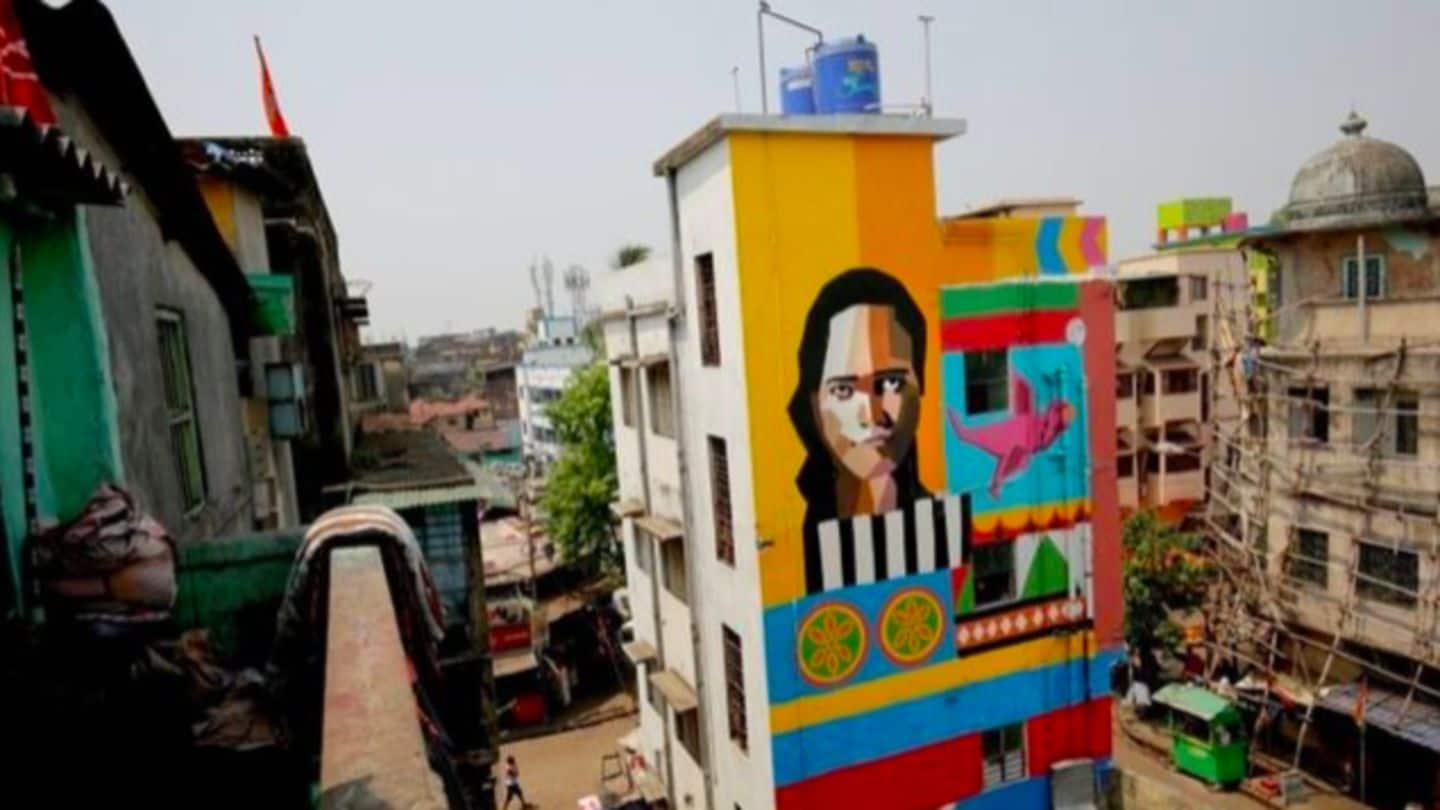
India's oldest brothel Sonagachi gets a colorful makeover
What's the story
Often described as India's oldest and Asia's largest red-light district, Kolkata's Sonagachi has got a vibrant, colorful makeover, courtesy transgender artists and a Bangalore-based art collective.
Painted as part of an awareness campaign on sex-worker rights, the murals contrast starkly with the dilapidated neighborhood, much like the dreams and lives of its 11,000 women.
Here's all about Sonagachi, as time changes it once more.
The name
Sonagachi gets its name from a dacoit turned Sufi saint
Sonagachi in Bengali means "tree of gold". The red-light area is believed to have been named after Sona Ghazi, a dacoit turned Sufi saint who, originally named Sanaullah, lived there with his mother.
PT Nair writes in his book 'A History of Calcutta's Streets' that she built a large mosque upon his death, which later got popular as the mosque of Sona Gazi.
History
A melting pot of pilgrims, travellers and businessmen
Because there is no foolproof documentation of Sonagachi's early history, several theories float.
One is that it was established by the British and chosen by Bengali babus for brothels because of its close proximity to the Hugli river.
However, journalist Gautam Basu Mullick believes the region attracted hordes of pilgrims, travellers and businessmen even before the colonial rule, giving rise to a red-light area.
Present
Sonagachi sex workers earn between Rs. 200-Rs. 20,000 a night
Once owned by prominent Bengali families, the brothels of Sonagachi are today decrepit mansions with dark staircases, dingy alleyways, hanging lingerie and overlooking balconies, crammed around rat-infested stinky drains.
It is home to over 11,000 sex workers who serve everyone from laborers to politicians and businessmen in filthy 6x6 rooms, and charge anywhere between Rs. 200 to Rs. 20,000 for a night.
Future
No matter the present, Sonagachi women hope for better future
Each Sonagachi woman has a story to share. Rapes and sexual abuse are common, with most having no one to complain and nowhere else to go.
However, despite their horrific living conditions, they hope for a better tomorrow, at least for their children.
Several local NGOs like Apne Aap are working towards breaking this cycle of oppression by making their kids self-reliant through education.